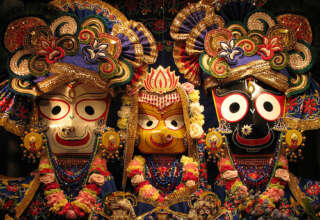
We find wisdom as a source of leadership in the life and work of Nelson Mandela—especially as we witnessed his careful guidance in the creation of a new governmental structure in South Africa. Mandela’s story, however, also leads us to a cautionary note—for a reliance on wisdom in leadership roles is not without its risks. What happens when wise leaders die or retire? How is the knowledge and experience held by this leader passed on and how is credibility established with a new wise leader? We found this kind of crisis of succession occurring when Mandela was no longer leading the country—and this crisis is to be found right now among the Zulu communities in Africa (Madlala, 2021).
What about the role played by a courageous leader? The capacity to take risks and remain vigilant in a world filled with volatility, uncertainty, complexity, ambiguity, turbulence and contradiction—what I have labeled VUCA-Plus (Bergquist, 2020) requires considerable courage. The mythic history of struggle against colonial rule in African culture might support and encourage this courage. Furthermore, it becomes a sacred duty as a person assigned to a specific role in the African cosmology (on behalf of the ancestors) to take on this role as warrior, conflict-manager –and even entrepreneur (Bergquist, 2011).
Once again, we can point to the exceptional life of sacrifice led by Nelson Mandela. His years in prison, arising from his courageous resistance to apartheid, speak forcefully to the powerful source of leadership to be found in courage. However, as in the case of wise leadership, there is a risk inherent in turning to and relying on courageous leadership. The final years of Mandela’s leadership and years after he served in a leadership role speak to this risk. What happens when there is no longer a human enemy or challenging force of nature (such as a pandemic or global warming)—or will they always be present?
To what extent have African communities been required over the years to find an enemy and sustain battle in order to justify courage? Most importantly, can we ever forgive our enemy? Certainly, the Truth and Reconciliation Commission in South Africa speaks in a profound manner to the potential for forgiveness—and to the remarkable achievement of at least some forgiveness (or at least understanding) in South Africa. Might such a commission be of value in other countries where the enemy always seems to be found (either in other nations or inside one’s own nation). And would it even be of value for something like a “truth and reconciliation” process to be engaged inside a conflict-ridden organization?










Charly Wiliamse
August 16, 2021 at 10:23 pm
I have thought so many times of entering the blogging world as I love reading them. I think I finally have the courage to give it a try. Thank you so much for all of the ideas!
power bi course
December 7, 2021 at 7:29 am
Thanks for sharing information.